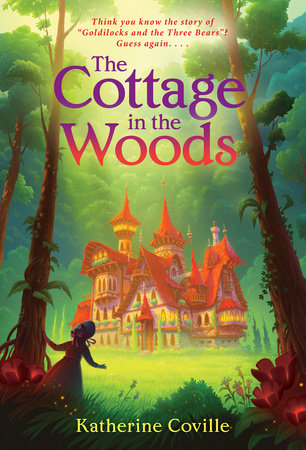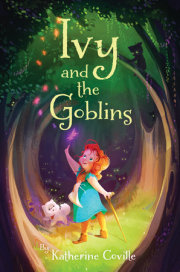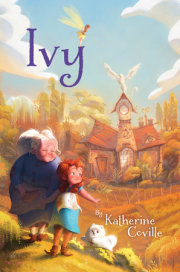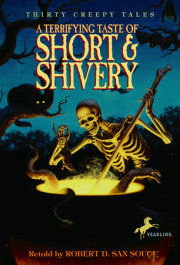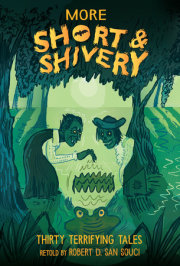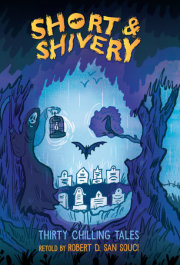1
Errare Humanum Est
The Cottage in the Woods, they called it. Later on that became the gatekeeper’s lodge, yet they had been so happy there that they kept the name for their grand new manor house. Mr. Vaughn couldn’t have been any prouder if he had built that place with his own two paws. It was his vision, his will behind it all, as if he’d wrestled it from rock and timber himself. It was no cottage either. The very thought is laughable.
Eight bedrooms it had in the east wing alone, with balconies, and hot and cold running water no less. And the huge nursery, of course. They had such hopes, such dreams! And then there was the great hall itself, so grand, with the parquet floor and the carved mantelpiece; the den, for him, and the solarium, for her; and the drawing room with the crystal chandelier. And out through the French doors were the terrace and the gardens. Those French doors that the servants said never did shut right. The one flaw. That whole great house just sitting there, and a child could have opened those doors.
And did.
But rustic? No, nothing rustic about it, not even my own quarters. Yet they talk about the three bowls, three chairs, three beds as if that were all there was. No one seems to realize that that was as far as the girl could count then. There was so much she didn’t know. A regular little savage she was in the beginning. But I’m getting ahead of myself. Master Teddy would’ve stopped me with a look, and insisted that I start over. Nothing pleased him half so much as a story well told.
I was an eager young bear that fall when I first came to live at the Cottage. I had been taken on as governess to Master Teddy, my first position. Fresh out of school and desperately anxious to please, I was determined to prove myself and make my dear papa proud. Papa had raised me from a cub after Mama died, and he’d showered as much love on me as any two parents could have. “Ursula,” he would say to me, “you’re the apple of my eye and the beat of my heart!” And so it was with great ambition and pride that I set off to join the Vaughns’ household. Indeed, my father and Mr. Vaughn had been friends in their university days, and I knew that Father greatly prized Mr. Vaughn’s good opinion. My own parents had married young--married for love--and I had come along shortly thereafter. Mr. Vaughn had married much later, after he had made his fortune in lumber and speculation. He had prospered brilliantly, while Father struggled by as headmaster of a small school. But their friendship still thrived.
Papa was a great believer in education, and so, despite our slim resources, he had managed to send me to the fine private seminary for young ladies that had lately been the center of my life. At Miss Pinchkin’s Academy for Young Ladies, I received instruction in literature, history, art, music, French, science, natural history, geography, algebra, and comportment, including how to serve tea, and how to properly respond to a young man proposing matrimony. Feeling keenly the faith that Papa placed in me, and wanting so to please him, I had worked my hardest and graduated in three years, the youngest in my class. Upon my graduation, Papa presented me with the most precious gift I had ever received, my mama’s silver locket. A lovely piece of jewelry, it opened to reveal a miniature portrait of Mama and Papa on their wedding day. I wore it always from that day forward. That and Mama’s wedding dress were the only things I had of hers, and they were my prized possessions.
I believe it was due to Mr. Vaughn’s friendship with Papa that he was willing to take me on as governess despite my young age, but Papa expressed his confidence in me, and rather than cause him a moment’s disappointment or anxiety, I would have aspired to anything, or suffered any manner of hardship in silence. I often felt my dear mother’s presence too, watching over me and encouraging me always to do my utmost.
Such was my frame of mind as I made my way for the first time up the winding drive through the Forest to the Cottage in the Woods, expecting to see around each bend the spires of the fairy-tale palace I had built up in my imagination. The reality proved more enchanting than any fantasy. I still can recall the effect on my senses when the vista opened up and I beheld the Cottage in all its comeliness and perfection. It was a thing of beauty, surely the largest, grandest, most impressive home I had ever seen, yet still somehow cozy and welcoming. As I stopped to take it in, I had no premonition of the trials that lay in wait for me there. I only knew how appealing it looked as I came toward it, and how it seemed to draw me in.
The big double doors were opened by a gray-haired gentleman of ferociously erect posture. He was human, as was so often the case, conventional wisdom holding that humans made the best butlers. We sentient creatures of the Enchanted Forest had traditionally prided ourselves on our open-mindedness about humans. (Whether the humans were as open-minded about us was another matter.) Indeed, it was impossible to predict in the Forest which creature, from a spider to a donkey, might begin speaking to you. Some of us had been enchanted by witches or wizards, some had eaten fairy food or stumbled on some place that was under a spell, and some, like me, had inherited their enchantment from Enchanted parents. I had come from a long line of Enchanted bears, the proud Brown family, and could not imagine life otherwise, but there were wild bears in the forest, and other animals as well, living in their natural state. It was not always easy to tell who in the Forest was Enchanted and who was not, and so it was best to be very polite and considerate to all. This, at least, was the philosophy of most inhabitants of the Enchanted Forest. Occasionally, prejudice would rear its ugly head somewhere, and create divisions between humans and the Enchanted, but I had never experienced this. There were even rumors of places far beyond the Forest where all beasts were wild, and humans hunted them, for food or for sport, but these were cautionary tales to scare miscreant youngsters with; no thinking beast could credit such anecdotes.
But back to my story. I went straight to the front door, rapping lightly with the knocker, and upon its being opened, I produced a bright smile and gave the butler my name. He nodded solemnly and showed me into the library to await the master, making a slight bow as he left the room. Somehow, despite his courtesy, I felt certain that he had judged me as terribly young and gauche. I had to quell a flash of resentment, for I had worn my most sober outfit and forced myself not to stare open-mouthed at the grandeur around me, but purposely adopted an expression that I hoped would look profoundly serious and mature. Despite my feigned sophistication, I felt my eyes widen as I took in the vast collection of books: row upon row of finely bound volumes lined up from floor to ceiling. I drew closer, surveying the titles. Here were all the classics; the writings of the ancient philosophers, including some humans; volumes of mythology, religion, and poetry; and a procession of thick encyclopedias. Several books lay open on a wide table, and I peered into them, feeling as if I were invading someone’s privacy, but I was in love with books and could not help myself. I picked up one thick volume, bound in red, holding the place carefully while scanning through the pages. It consisted of phrases written in a language foreign to me, with English translations. I chose a phrase and tried to sound out the words under my breath.
“Scisne latine?” rumbled a deep bass voice behind me. I jumped, the book slipping from my paws and landing open, facedown on my shoes. I was mortified, frozen to the spot. I looked up at the forbidding countenance of he who must surely be Mr. Vaughn, my employer, and stammered my apologies. Dark eyes flashed back at me from under a broad brow. The effect was quite forceful. Everything about his manner and dress announced that this was a bear of consequence, not to be trifled with. I swallowed hard.
“Miss Brown, I presume?” he said.
“Yes, sir,” I answered. “It’s Ursula, sir.”
“Well, Miss Brown, are you going to pick up that book, or must I?”
“Oh yes, sir,” I breathed. My power of movement came back to me with a sudden jolt, and I bent over and scooped up the book, noticing as I did that several pages were bent or wrinkled. “I am so sorry, sir,” I said. “I’ll replace the book, of course. I shouldn’t have touched it. I don’t know what came over me. It was an accident, sir. I’m afraid your voice startled me. I’m really very good with books. I’m an avid reader. I’ve always loved books. I . . .” My voice trailed off as I realized I was saying too much. I set the book down gently on the table and was silent.
“Errare humanum est, Miss Brown. From the ancients. ‘To err is human.’ One may philosophize that it is also ursine. We shall dismiss this incident as unimportant. In the future you will, I am sure, learn to overcome this unwarranted nervousness in order to avoid any more such accidents. I have confidence that you will live up to the same level of virtuous character and professional excellence that I’ve always respected in your father. Is my faith justified?”
“Oh yes, sir,” I answered.
“Good. Vincit qui se vincit, Miss Brown. ‘She conquers who conquers herself.’ ”
“Yes, sir.”
“Then we understand one another?”
“Je comprends tres bien, m’sieur,” I replied, hoping to impress him.
“Ah, yes. Listed among your many accomplishments, you speak French. Very good. You will instruct young Theodore in both Latin and French.”
I swallowed hard. “But, sir, I barely recognize Latin.”
“Your references greatly praise your ability to learn quickly, Miss Brown. Take the book of Latin phrases, and here, this Latin dictionary and grammar book, and this history of Rome, and yes, of course, the legend of Romulus and Remus.” This he said as he drew the books from their shelves and piled them in my arms. “If you begin studying at once, you’ll be conjugating Latin verbs in a fortnight. You should be able within the month to commence teaching beginning Latin along with the French. French is derived from Latin, you realize; they are closely related.”
“Forgive me, sir, but a month?”
“All right, then. Let us say before the winter snows. Surely you can handle that assignment?”
“But won’t that be a lot for the youngster to take in?”
“Nonsense. The young mind is like a sponge. We must put it to good use. I will not have my son idling away his time. You are his teacher. Teach! Audaces fortuna iuvat. ‘Fortune favors the brave.’ ”
“Yes, sir. I will do my best,” I responded, trying to hide the quaver in my voice.
“Good. I expect nothing less of you,” he said, ringing the servants’ bell and taking a gold timepiece out of his vest pocket. “Fairchild will show you to your quarters. You will join the family tonight for supper, where you will meet my wife and Master Theodore. We sit down at table in half an hour. Don’t be late.”
2
The Echo
I followed Fairchild through a maze of corridors, up a back stairway, and down a long, wide hall hung with paintings. Some were portraits, and some were representations of celebrated moments in history, like Tom Thumb’s famous horse ride, and the running of the great race between the Tortoise and the Hare.
The many family portraits were easily recognized by one unmistakable trait that had apparently been handed down from generation to generation: a distinctive, aristocratic snout. One portrait stood out in harsh contrast to the rest, a depiction that could easily have been Mr. Vaughn himself were it not for the queer, ugly smile, and something repellent about the eyes. The figure wore a long black coat from another era, with an incongruous bunch of lace at his throat, and a wide black plumed hat. I thought perhaps he was a pirate, certainly some variety of scoundrel. As I stood pondering, Fairchild suddenly cleared his throat, bringing me back to reality. He had been waiting with pained forbearance, holding the heavy stack of books I had just been given.
“Who is this?” I asked, indicating the portrait.
“Perhaps the head housekeeper, Mrs. Gudge, will give you the tour, later,” he said. “Perhaps after supper,” he said more pointedly, “or tomorrow.”
“Oh yes. Yes, of course,” I answered, recalling the master’s admonition to be on time for the meal. After a few more turns, we reached my quarters, which consisted of a sizable, simply furnished bedchamber and double doors leading to a balcony that looked out over the kitchen garden. It was appointed in pale blue, with a blue counterpane on the four-poster bed and shiny new chintz covers on the chairs. A mirror was propped up on the bureau, and I wondered briefly if it might be a magic mirror. A household like this one would doubtless have many magic mirrors, but I hardly dared hope one might be provided for the governess.
Certainly someone had taken pains to ensure my comfort. Fresh water had been left in a pitcher, and a vase of cut flowers adorned the mantelpiece. Simple as it was, it was quite the most elegant and charming place I had ever inhabited, and I was grateful for the Vaughns’ generosity, but I was also faced with the fact that I had been dreading since I first applied for the position: I would have no roommate. One might suppose that I would be thankful for the newfound privacy, but I only felt a cold stab of apprehension at the idea of sleeping utterly alone. I tried to imagine what this room would be like in darkness. Would moonlight come in the window? Would there be creaks and bumps in the night? Adrift in a sea of childish fears, I suddenly realized that time was passing. I quickly washed my face and paws, put on my clean black stuff gown and my best lace collar. Checking my reflection in the mirror, I considered asking it for directions back down to the dining room, but I thought that I could retrace my steps and so I didn’t take the time. I stepped out my door, took a left turn and a right, and found my way back to the portrait gallery. That much was easy. I hurried past the disturbing portrait of the pirate, trying not to look at it. After that, I was not certain which way to go. Stairways led in two directions. One direction was darker, so I took the other. This brought me before long to a narrow hallway, which I followed to a large parlor. From there I took several turns, none of which yielded anything familiar. By this time, I knew I must already be late for the meal, and I felt my heart beating a little faster. As I searched in vain for the wide hallway I remembered, I regretted miserably that I had not tried to get directions from the mirror before I set out. Finally, I retraced my steps to the first stairway and braved its shadows, nearly colliding with the tall figure of Fairchild, who had apparently been sent to find me. I thought I saw a flicker of amusement cross his features, but human faces were notoriously hard to read. He accompanied me to the dining room, where I found myself once again explaining and apologizing and trailing off into an awkward silence.
Copyright © 2015 by Katherine Coville. All rights reserved. No part of this excerpt may be reproduced or reprinted without permission in writing from the publisher.

